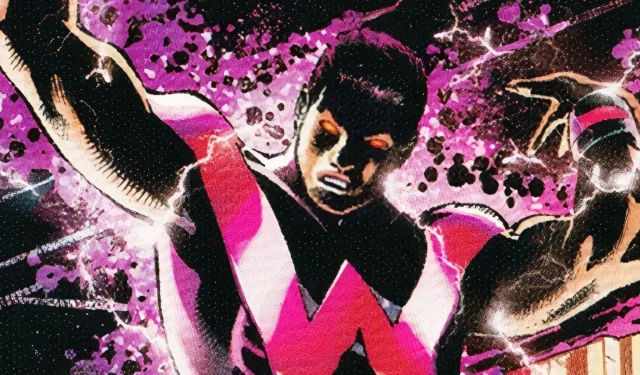
Essential Insights on Marvel’s Upcoming Wonder Man
- The upcoming Wonder Man series on Disney+ provides a unique platform for Marvel to engage in self-satire.
- Set to launch in December 2025, the show is expected to explore satirical themes within the superhero genre.
- To set itself apart, Marvel must avoid conventional superhero clichés.
Marvel’s eagerly anticipated Wonder Man series on Disney+ is poised to allow the studio a chance for some playful self-reflection. Having generated billions in box office revenues and shaping the landscape of superhero cinema, Marvel has always infused humor into its projects. However, this time, the emphasis is on an ironic take that critiques the very Hollywood ecosystem they’ve influenced.
With veteran writer Andrew Guest at the helm and critically acclaimed director Destin Daniel Cretton on board, Wonder Man was initially unveiled in 2022 as part of the Marvel Cinematic Universe’s phase six. Although the character made a brief appearance in James Gunn’s Guardians of the Galaxy Vol. 2—portrayed by Nathan Fillion—his scenes ended up on the cutting room floor. Still, Gunn has expressed a desire to see Fillion return at some point. Nonetheless, the series has cast Yahya Abdul-Mateen II for the lead role, a move that signals a fresh start for this character.
Scheduled for a December 2025 release, Wonder Man will focus on Simon Williams, a son of an industrialist and an initial villainous figure who ultimately allies with the heroes. While detailed insights about the plot remain scarce, reports from industry insiders like Variety’s Joe Otterson suggest that the series may adopt a more satirical tone compared to previous entries. If this creative direction holds true, it may provide Marvel with a golden opportunity to humorously critique its own production processes at a time when self-awareness could significantly enhance its public image.
As Marvel continues to hold a significant position within Hollywood, it is undeniable that its creative momentum has waned recently. Many projects released after the blockbuster Avengers: Endgame have faced critical indifference and disappointing box office returns. Titles such as Ant-Man and the Wasp: Quantumania and The Marvels have underscored a shift from risk-taking to formulaic storytelling, resulting in mixed reviews and hesitancy from audiences.
If Wonder Man can indeed embrace a satirical tone, it might just provide Marvel an avenue to restore its image by becoming a self-aware entity that acknowledges and addresses the critiques aimed at it. Numerous celebrities and brands have successfully mended their public reputations through well-timed humor, and by adopting a similar stance, Marvel could assure fans that it recognizes their frustrations and is committed to enhancing the quality of its projects.
The series could also serve as a broader commentary on the contemporary Hollywood studio landscape, a framework largely shaped by Marvel itself. Over the last sixteen years, the film industry has undergone significant transformations, exacerbated by the pandemic and labor strikes, resulting in a heightened reliance on established intellectual properties and a more risk-averse mentality.
Moreover, Marvel has recently garnered a reputation for stifling creativity within its production circles. By favoring executive decisions over the vision of showrunners, creative chaos has become a hallmark—changes are underway as the studio reevaluates this approach, particularly after the mixed reception of shows like She-Hulk and Secret Invasion. If Marvel chooses to confront these issues with levity, it could renew fans’ trust in its leadership’s ability to navigate future challenges.
While poking fun at the conventions it has established, Wonder Man must tread carefully to avoid falling into the same tired tropes it aims to satirize. As superhero narratives have become increasingly predictable, audiences have displayed a weariness that affects Marvel’s box office potential. To succeed, Wonder Man must carve out its own identity, striving not to blend in with the extensive catalog of superhero films inundating the market over the last decade and a half.
Optimism remains for this project. Andrew Guest, renowned for crafting sharp comedies like 30 Rock and Community, brings a wealth of experience to the role of showrunner. Similarly, Destin Daniel Cretton brought genuine depth to Marvel’s first Asian superhero in Shang-Chi and the Legend of the Ten Rings, receiving widespread acclaim. With such a talented team leading the charge, the real question is: Will Marvel empower them to innovate and succeed?




Leave a Reply